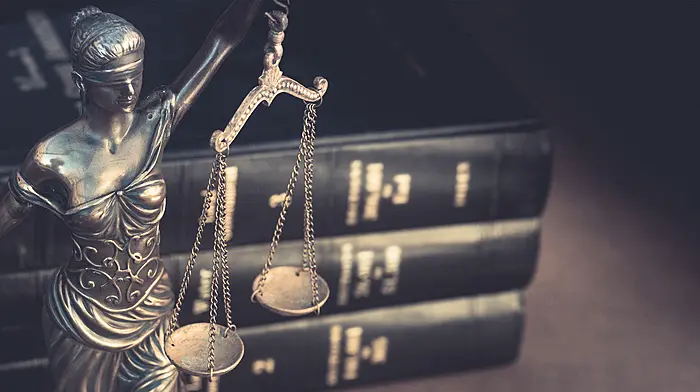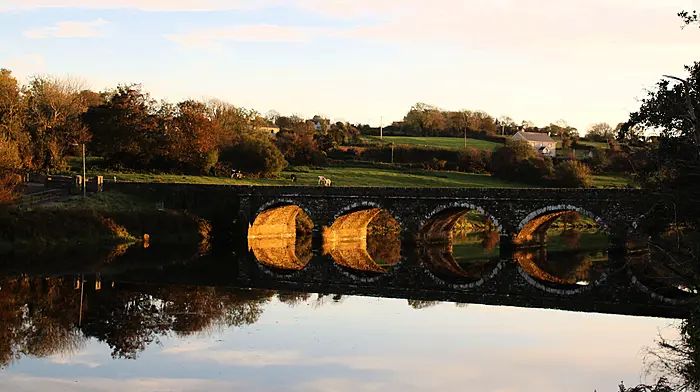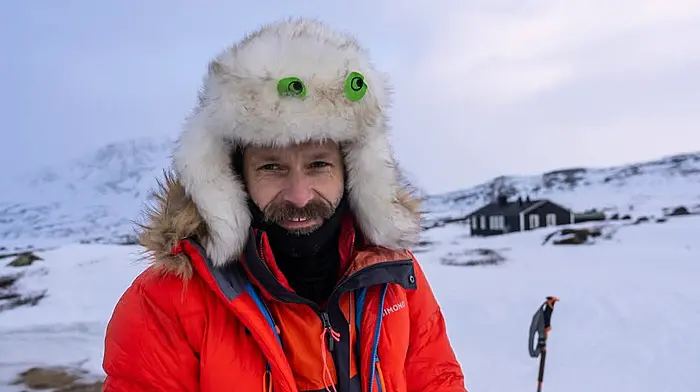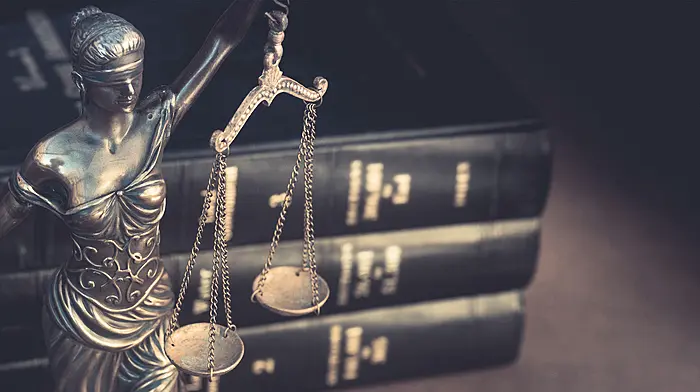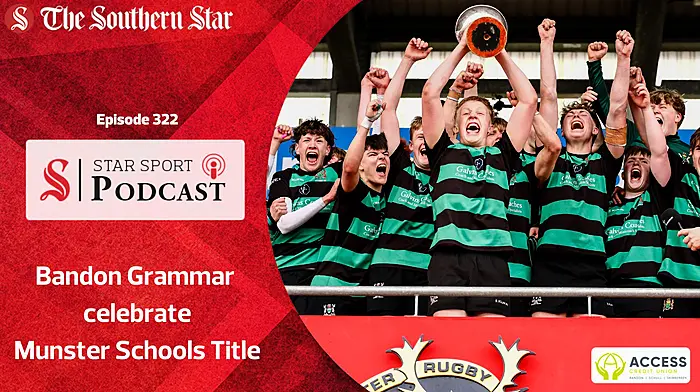Emily Hegarty has been through the mill since winning an Olympic medal in Tokyo. As she tells KIERAN McCARTHY, those experiences have shaped her for this summer in Paris
*****
EMILY Hegarty is more grateful than most to be competing at these Olympic Games.
Twelve months ago, the Skibbereen rower couldn’t even set foot in a boat as a back injury kept her off the water for the entire 2023 season.
The Tokyo Olympic bronze medallist admits there were times when she feared that she might not return, but this Aughadown woman, forged in the champion-making furnace of Skibbereen Rowing Club, is a tough operator.
If Emily’s rise from the River Ilen to the podium in Tokyo with the Irish women’s four taught us anything, it’s to never count her out – and those same battling qualities were called on here.
‘There was a point last year when I thought I might not make it back,’ she admits, frustrated on dry land and watching on as two Irish women’s heavyweight boats – the double and the pair – qualified for Paris while she stood still.
‘The more time passed, the harder it became,’ she says, and for an athlete who has made her reputation by moving fast on the water, the slow progress in her rehab took its toll.
‘Mentally I found myself in a bit of a hole with that – if I am not rowing, what am I doing? I don’t know what else to do,’ she recalls feeling during the rougher days when the calm of the water seemed too distant to touch.
Progress was slow, but she kept pulling in the right direction, first starting back on the rowing machine and then a return to the water in October, as the 2024 Olympics became a focus. Emily missed out on a full season of international rowing, but class is permanent – the Skibbereen rowing trailblazer was selected in a new-look Irish women’s four earlier this year, the same boat she won an Olympic bronze medal in three years ago, that has powered its way to Paris through the final qualification regatta. Next week the 25-year-old will compete at her second Olympics, more thankful than most to be back on the big stage.
‘I need to remember that too,’ she says, ‘when I am having a bad day and am not happy with my performance, it’s then I need to think back to 12 months ago when I wasn’t able to set foot in a boat. That puts perspective on things. I am grateful to be here.’
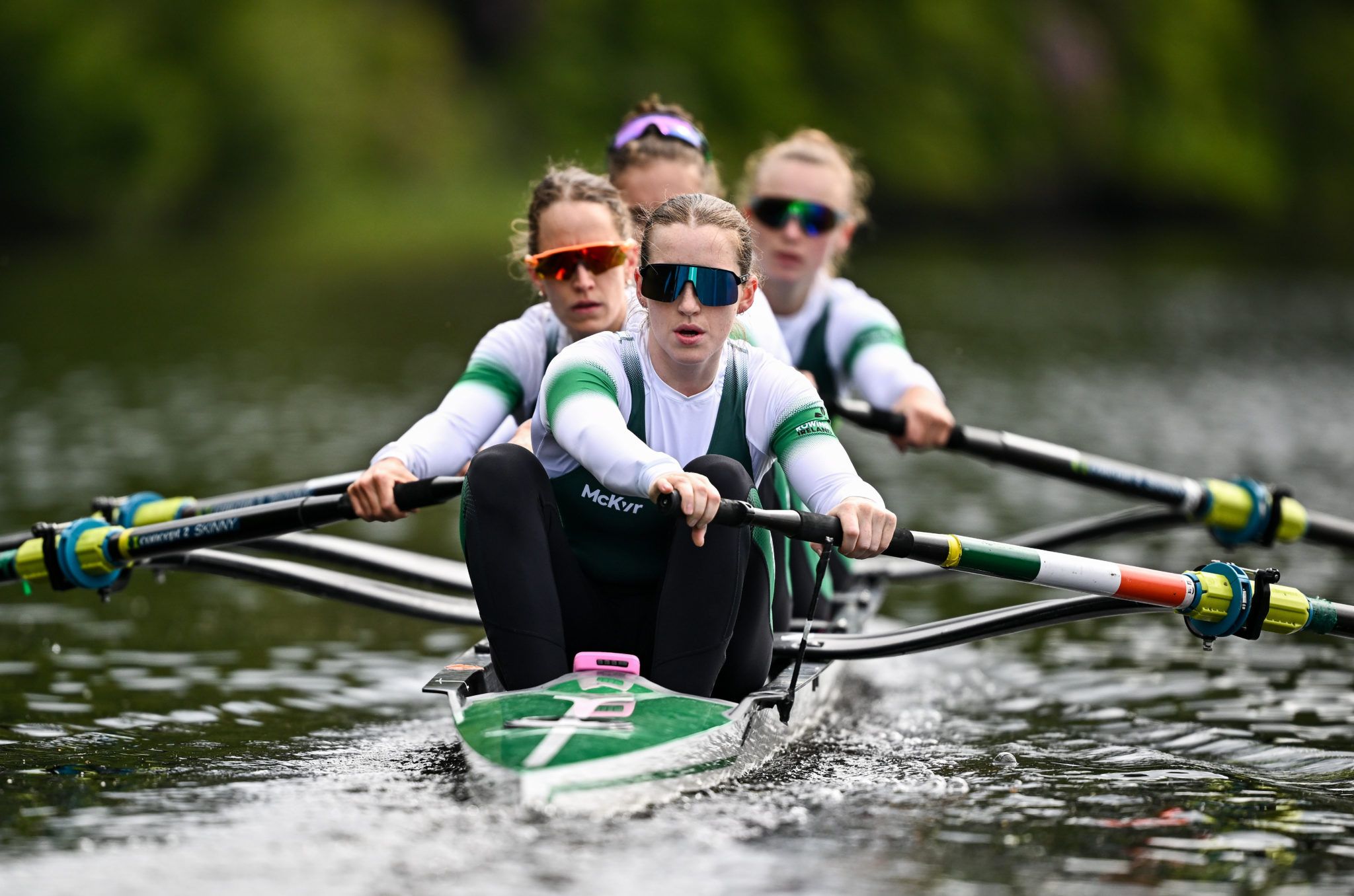 THE FANTASTIC FOUR: The Irish women’s four team, from front, Emily Hegarty, Natalie Long, Eimear Lambe and Imogen Magner.
THE FANTASTIC FOUR: The Irish women’s four team, from front, Emily Hegarty, Natalie Long, Eimear Lambe and Imogen Magner.(Photo: Harry Murphy/Sportsfile)
Her time marooned on land also opened her eyes to the thoughts of life after rowing. This has been her sport since she was 11 years old and followed her older sister Alice through the doors of Skibbereen Rowing Club. Emily knew she had found her sport. Fourteen years on, she is an Olympic medallist and a two-time Olympian, but also a realist to know she needs a back-up plan for life off the water.
‘A big thing for me was when I was injured last year and couldn’t row, it really put things in perspective, that I need to have something that I am passionate about outside of rowing, so when things aren't going well I still have something that I enjoy doing,’ Emily explains.
‘I knew that I needed to find a career that I am passionate about and want to work in, so if things don’t run smoothly in rowing at least I still have that to fall back on.’
Post-Paris, former UCC student Emily is moving to London to study a postgraduate in physiotherapy at King's College London. The silver lining to her year out injured is she knows the importance of existing outside the rowing bubble, and also filling the void in those post-Olympic months with something that interests and challenges her.
‘I know what to expect post Games too,’ she says, in reference to life after the Tokyo Olympics.
‘Everyone talks about there being a bit of a down after the Games, but three years ago we were just happy to be at an Olympics, medal or not, so how could we be depressed afterwards? I realise now it’s important to have a plan for after.
‘No matter the result, you have had tunnel vision for the past few years leading up to this huge event and when it’s over, you can feel helpless, not knowing what to do with yourself. Having a plan is important.’
With London just a short flight away, Emily is not closing the door on Rowing Ireland and her international career, and does plan to stay involved, but will, in her own words, relax a bit. But not just yet, there’s a job to do in Paris. Like she did in Tokyo.
***
‘To be honest, I had a bit of impostor syndrome for a long time,’ Emily admits in describing life after the 2021 Olympics when she won a bronze medal with the Irish women’s four.
This was an historic moment for the sport: a first Olympic medal for Irish women’s rowing – and given Skibbereen’s role in the rise of Irish rowing, it felt fitting there was a Skibb woman in the boat.
It was also the first Olympic medal for Ireland in Tokyo, as Emily, Aifric Keogh, Eimear Lambe and Fiona Murtagh were thrust into the national spotlight.
Emily was 22 years old in 2021, the youngest of the quartet that finished third in the A final behind Australia and The Netherlands. That was a whirlwind ride, as the Irish women’s four qualified through the last-chance saloon regatta – similar to the current four’s route to Paris – just 69 days earlier and took that momentum to grab a sensational spot on the podium. It was a blur in one sense, and Emily, trying to process it all, admits afterwards feeling almost embarrassed to tell people she had won an Olympic medal.
 HISTORY-MAKER: Emily Hegarty with her Olympic bronze medal.
HISTORY-MAKER: Emily Hegarty with her Olympic bronze medal.
‘I’m over that now, but there was a time where I didn’t want to sound like a wally,’ she laughs, but she’s three years older and wiser, as Paris looms, and has all the tools to deal with what an Olympics brings.
‘I didn’t allow Tokyo (and winning a medal) to change my life either, but in terms of my family and friends and those who are closest to me, they have always been around me, medal or no medal, so I wouldn't say it changed my life massively,’ she says.
‘It was a nice bonus, for sure. But I came back the same person as I left. I still have the same friends. It didn’t massively change things for me.
‘I think I will appreciate it much more down the line.’
Her Tokyo experience – as well as the challenges of 2023 – has armed Emily with a sense of confidence and self-belief, too. She is a more experienced rower. Has survived the ups and downs of this Olympic cycle and emerged as a stronger version of the Emily we saw at the last Olympics. Her back injury in 2023 means she also knows what works for her and doesn’t, feels patient and focussed and more in control of what to expect from herself.
‘Had I picked up the injury pre-Tokyo I don’t know would I have the same confidence heading into the Games like I have now,’ she told the Star previously. The middle child from Mohonagh also proved she can handle the Olympic pressure in Tokyo. She’s calm now, before the Paris storm, and intent on causing a shock like the Irish women’s four did in 2021.
***
Move over Charlie’s Angels, the current Irish women’s four are in town – a quick look at the photos from the announcement of the Team Ireland rowing team for Paris showed this new-look quartet are having fun. Emily enjoyed this photo-shoot far more than the pre-Tokyo version that was sprung on the Irish rowers at the National Rowing Centre.
 IRELAND'S ANGELS: The women's four crew of, from left, Emily Hegarty, Natalie Long, Imogen Magner and Eimear Lambe.
IRELAND'S ANGELS: The women's four crew of, from left, Emily Hegarty, Natalie Long, Imogen Magner and Eimear Lambe.
‘Not one of us had our hair brushed, the state of us and they were the photos used for the Games!’ she laughs now, looking back at the different build-up to the delayed 2020 Olympics, held in ’21, because of Covid. This time it was different – Emily and Co have enjoyed the run-in to Paris, from photo-shoots to receiving their Olympic kit in front of family and friends at the Oriel Hotel in Ballincollig, but never losing sight of their target: the Games in Paris.
This new-look women’s four of Emily, fellow Tokyo survivor Eimear Lambe (Old Collegians Boat Club in Dublin), as well as Imogen Magner (Carlow Rowing Club) and Natalie Long (Lee Valley Rowing Club) have been together all year, and are moving in the right direction.
Their first regatta together was World Rowing Cup I in April (Emily’s first time rowing for Ireland in 566 days because of her back injury) where they finished fourth, and a month later the Irish boat won their final at the Final Olympic Qualification Regatta in Lucerne to take one of the last two spots left at next week’s Games in Paris. (Much to our sport editor’s delight, we got to use the Emily in Paris headline we’ve been holding on to!). Similar to Tokyo, they’re pulling their best strokes at the right time.
‘We are improving and in a good state ahead of next week,’ Emily adds, with the confidence of an Olympic medallist who has lived this experience before, and has the medal to prove it. She’s also coming through her toughest period, too, and her story is one that can inspire.
***
Emily’s rise in rowing is remarkable – she was still in school and working part-time in Kalbos Cafe in Skibbereen town when Gary and Paul O’Donovan won Olympic silver to inspire the rowing community in 2016, and now she is an inspiration to the next generation.
She is Skibbereen Rowing Club’s first-ever heavyweight Olympian, and with the axing of lightweight rowing from the Games this is now the route to the top. Emily is also the first female Skibbereen rower to win an Olympic medal. Like the O’Donovan brothers proved in Rio, rowers from Skibb can win the sport’s big prizes.
‘I definitely hope my story can inspire young members of the club,’ she says.
‘For me as a 14 year old, I wouldn’t have imagined that I would have an Olympic medal – but it is well within your reach. Having Gary and Paul win silver in Rio, that made us think that we had the same start in sport as they did, and the girls training in Skibb now have the same training that I did, so it’s not that far away at all.’
And Emily is not finished yet. After getting her hands on the Olympic bronze medal in 2021, she remarked: ‘it’s once in a lifetime.’ Now she’s determined to show lightning can strike twice, and add another medal to her collection. Given how she has battled back from last year’s struggles, don’t bet against Emily in Paris becoming one of the must-watch stories of these Games.





